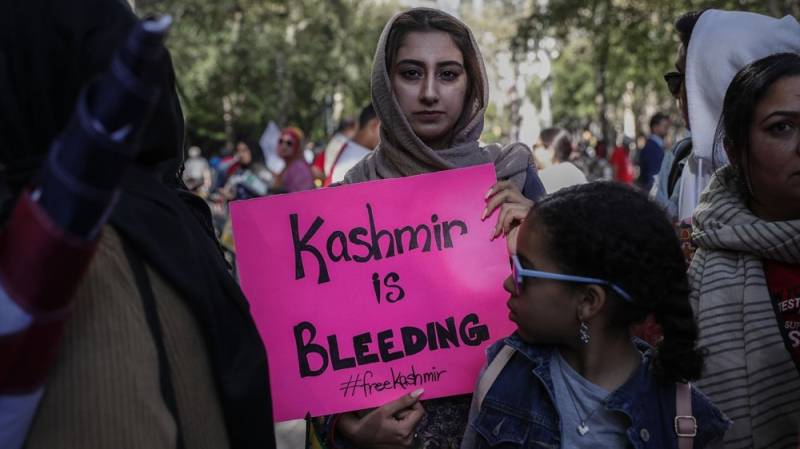
CREATOR: gd-jpeg v1.0 (using IJG JPEG v62), quality = 70
Moon Desk: India continues to push the false narrative that Jammu and Kashmir is a domestic matter. In reality, it remains an internationally recognized dispute, unresolved since 1947. AJK, the part of Jammu and Kashmir, which was freed from Indian aggression by brave Kashmiris alongside the tribals, is home to a functioning assembly and government that represent the democratic aspirations of the region.
This elected AJK assembly includes 12 reserved seats for the entire region of Valley and Jammu, symbolizing the voice of all Kashmiris, especially those living under Indian occupation. Any resolution concerning the region’s future must come through this democratic process, not by force or fiat from New Delhi.
India’s revocation of Articles 370 and 35A, the downgrading of Jammu and Kashmir into Union Territories, without the consent of its people, mirrors colonial-era annexations. Just as imperial powers once redrew borders and suppressed indigenous identities, India now attempts to erase Kashmir’s identity and distinct status through constitutional and administrative coercion.
But this is not the 19th century. Kashmiris today are politically conscious, resilient, and united in resisting forced integration with India. The identity of Jammu and Kashmir cannot be dissolved by a legislative maneuver in the Indian parliament.
The so-called legislative assembly operating under Indian occupation has no democratic legitimacy. It is viewed by many Kashmiris as a puppet body, propped up by force rather than genuine public will. Its existence serves only to mask the reality of military control and political repression.
This current setup is no better than the Vichy government of France, which functioned under Nazi occupation during World War II. Just as Marshal Pétain collaborated with occupiers while claiming to represent French interests, today’s leadership in Indian Occupied Jammu and Kashmir lacks the mandate of the people and functions under the shadow of coercion and state terrorism. Such regimes do not speak for the occupied; they speak for the occupier.
By revoking Articles 370 and 35A, India has also dismantled the diplomatic framework for dialogue. The Simla Agreement, once presented as the foundation of bilateral engagement, was based on the recognition of the special status of Jammu and Kashmir. With that status unilaterally voided, Pakistan rightly declared the Simla Accord null and void.
Moreover, it must be emphasized that the Simla Agreement was never ratified by the AJK Legislative Assembly. Any deal that excludes the participation and consent of the people of Jammu and Kashmir through their elected representatives is legally and morally invalid.
As India celebrates its so-called constitutional victory, the world must choose to hear the democratic voices coming from the valleys of AJK, not the propaganda from occupied capitals. The message is clear: India cannot speak for Kashmir, because it does not represent Kashmir.
Only when the people of Indian Occupied Jammu and Kashmir, through their genuine representatives are allowed to determine their future without coercion, foreign boots, or stage-managed elections, can a lasting and just resolution be achieved.
Until that day comes, Indian Occupied Jammu and Kashmir remains a colonized land. August 5 will not be remembered as a day of unity, but as a day of resistance against illegal annexation, occupation, broken agreements, and the denial of fundamental rights.
It is not a milestone of progress. It is a symbol of unresolved injustice and a call to the world to stand with the people of Kashmir in their enduring quest for freedom and self-determination.





